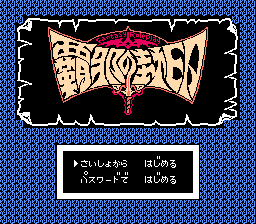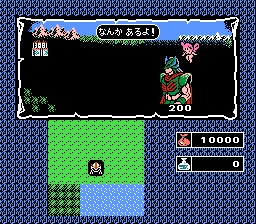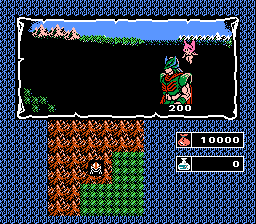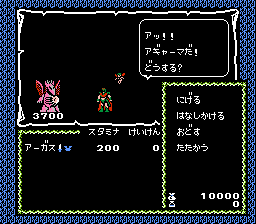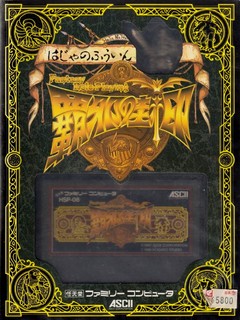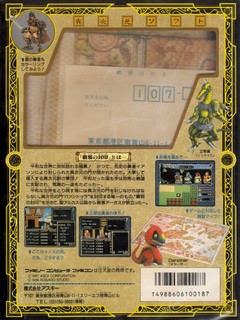Haja no Fūin for NES
NESGame controls in browser
Show Controller & SystemClick on play NES game now button first to load the game into emulator. Control keys:
Miracle Warriors: Seal of the Dark Lord
Online version of Miracle Warriors: Seal of the Dark Lord for NES. Miracle Warriors: Seal of the Dark Lord (Haja no Fūin in Japan), is a role-playing video game developed by Kogado, released initially on the Japanese PC-88 in 1986 and then ported to various other systems, including a Sega Master System version which was released in North America. The game takes place in a world of five lands spread out over three continents and came with an elaborate grid-format map noting areas of interest in the game. Throughout the world are several towns. Towns have smiths, who can repair weapons and armor, and healers that can heal and sell herbs...
Game details
Other platforms online 2
You can play Miracle Warriors: Seal of the Dark Lord online also in a versions for75%
rating (2 users voted)
Covers - Box Art
NES Console
Online emulated version of Miracle Warriors: Seal of the Dark Lord was originally developed for the Nintendo Entertainment System (NES), an 8-bit third-generation home video game cartridge-based console produced by Nintendo, first released in Japan as the Family Computer (commonly known as the Famicom) in 1983. The NES, a face-lifted version, was released internationally in the following years. The NES featured a number of groundbreaking games, such as the platform game Super Mario Bros, the action-adventure game The Legend of Zelda and the action game Metroid. As one of the best-selling gaming consoles of its time, the NES helped revitalize the US video game industry following the video game crash of 1983.
The game controller used for both the NES and the Famicom features an oblong brick-like design with a simple four button layout: two round buttons labeled `A` and `B`, a `START` button, and a `SELECT` button. Additionally, the controllers utilize the cross-shaped joypad, designed by Nintendo employee Gunpei Yokoi, for Nintendo Game & Watch systems, to replace the bulkier joysticks on earlier gaming consoles' controllers.

